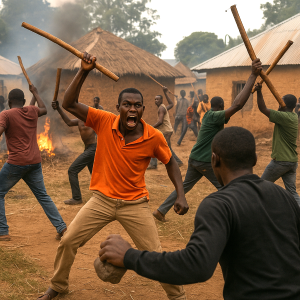Governor Chukwuma Soludo of Anambra State stirred public discourse recently when he boldly revealed that 99 percent of arrested kidnappers in his state are Igbos, not Fulanis—a declaration that cuts through layers of ethnic myths and blame games that often cloud Nigeria’s internal security challenges. His frankness is not just refreshing—it offers a roadmap for reducing communal tensions and tackling insecurity with integrity.
For too long, communal clashes and farmers-herders crises have bedeviled Nigeria, particularly in Plateau, Benue, Taraba, Kaduna, and Nasarawa states. These conflicts often escalate because of a dangerous habit of ethnic shielding, where communities protect or excuse the criminal activities of their own. This culture of silence and denial gives room for impunity to flourish while innocent lives and livelihoods are destroyed.
Governor Soludo’s stance sends a powerful message: crime has no ethnicity, and criminals should be named, shamed, and prosecuted—regardless of their communal or tribal affiliations. His approach stands in contrast to the prevailing norm in many flashpoints across the country, where leaders and communities often default to blaming external groups—especially the Fulani—for violence, while turning a blind eye to the misdeeds of their own sons and daughters.
By calling out criminals within his own ethnic group, Soludo has challenged other political leaders, traditional institutions, and civil society actors to confront homegrown criminality with the same courage and transparency. When criminals are publicly identified and denounced by their own, it strips them of the legitimacy and protection they enjoy under the cover of ethnic solidarity. It also sends a clear signal to the broader community: violence and lawlessness will not be tolerated in any form.
Moreover, honest community policing and conflict resolution efforts depend on accurate intelligence and accountability. When communities refuse to name or shame their criminals, they compromise their own security architecture. They also frustrate law enforcement efforts and perpetuate cycles of revenge attacks and mistrust.
Nigeria cannot build peace on a foundation of lies and selective outrage. The myth that all violence originates from outsiders has not only proven false but also dangerous. Whether in Anambra or Benue, Plateau or Zamfara, the truth must prevail over tribal loyalty if we are to achieve genuine security and reconciliation.
It is time for other governors and traditional leaders to adopt the “Soludo Style”—to speak hard truths, confront uncomfortable realities, and expose the rot within. Only by holding our own accountable can we expect justice and peace across communities.
If Nigeria must heal, we must stop shielding the guilty and start naming and shaming the real culprits—no matter whose child they are.


